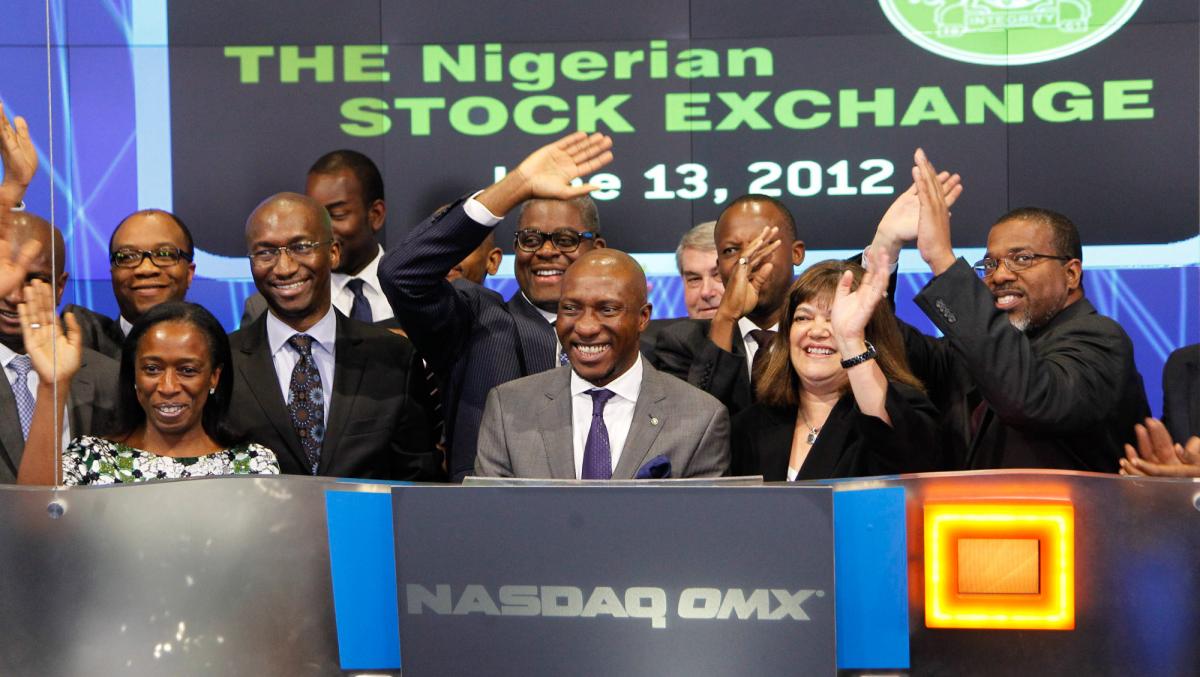There are no products in your shopping cart.
| 0 Items | £0.00 |

 NIGERIA'S stock market has shrunk dramatically over the last few months with foreign portfolio investors pulling out billions of naira amid bearish sentiments as the forthcoming general elections sends jitters across the financial world.
NIGERIA'S stock market has shrunk dramatically over the last few months with foreign portfolio investors pulling out billions of naira amid bearish sentiments as the forthcoming general elections sends jitters across the financial world.
According to the latest data from the Nigerian Stock Exchange (NSE), a total of N435.41bn ($2bn) was withdrawn from the market between January to July this year, compared with an outflow of N236.32bn ($650m) in the same period in 2017. With general elections due in February next year, investors are wary and the total value of equities listed on the NSE closed at N11.88trn last Friday, as against a peak of N16.154trn on January 19.
Nigeria's market capitalisation rose from N13.617trn at the start of the year as a result of A greater impetus from the recovery in global oil prices, increased domestic reserves, greater foreign exchange market stability and declining inflation. However, such gains have now been lost due to the uncertainty the election is generating, forcing investors to take their money out of Nigeria for now.
Alice Tomdio, the associate director of Capital Markets, PwC Nigeria, said: “Once there is any cause to fear, portfolio investors sell out their shares and they come back when the environment is better. All of these factors create a lot of volatility in the market and may be one of the reasons why we do not have a lot of initial public offerings in the country.”
She added that more focus ought to be placed on encouraging the participation of domestic investors in the capital market. According to Ms Tomdio, the current ratio of foreign to domestic investors is still quite healthy as foreign portfolio investors participate primarily in the secondary markets.
Furthermore, Ms Tomdio stated that it was normal for earnings release or government action to cause a big swing in the activity of foreign investors. With a significant decrease of 64.68% in total foreign transactions to N36.17bn in July from N102.41bn in June, domestic investors out-performed their foreign colleagues by 50.48%.
According to the NSE, domestic transactions were largely driven by the 55.48% increase in retail domestic participation, which recorded N29.12bn in June and N65.42bn in July. Between 2011 and 2015, foreign transactions consistently outperformed domestic transactions, although domestic transactions marginally outperformed foreign transactions in 2016 and 2017, accounting for 52% of the total transaction value last year.
Sir Sunny Nwosu, the president of the Independent Shareholders Association of Nigeria, said the economic policies of the country were responsible for the exit of foreign investors. He noted that if the policies were favourable, investors would come around and if otherwise, they would flee.
“It is not even advisable for them to stay at this point because there is no assurance we can give them as elections are approaching and they need to be very careful about their money. These investors have been in this country and have enjoyed a lot but they are not willing to gamble with their money now.
“When the situation in Nigeria is showing a doom time because of the elections, they will all go away and wait until after the elections. They want to make sure that the economic situation does not affect their investments, whereby they will lose money,” Sir Nwosu added.
Andrei Ugarov, a partner at PwC Nigeria, stated that more emphasis ought to be placed on foreign direct investment instead of foreign portfolio investment, describing the former as more beneficial to the country. He added that that currency control and uncertainties could be the reason why there was a scarcity of portfolio investors as well as a lack of adequate foreign exchange.
Mr Ugarov said: “When things are not so good and are shaky, portfolio investors leave immediately. It is very easy for them to sell off their shares and move out, whereas, if you have invested in a private company or industry, it is more difficult for you to leave because you have a longer-term view.
“So, from the development and sustainability perspective, the focus should really be on direct investment. Although it is also good to have portfolio investors, that should not be the end objective.”
Johnson Chuwku, the managing director of Cowry Asset Management, said the only thing the government could do to address the exit of foreign portfolio investors was to reduce political tension in the country. According to him, the government needs to give assurance that the coming elections will be free and fair and that the two major political parties will not create war.